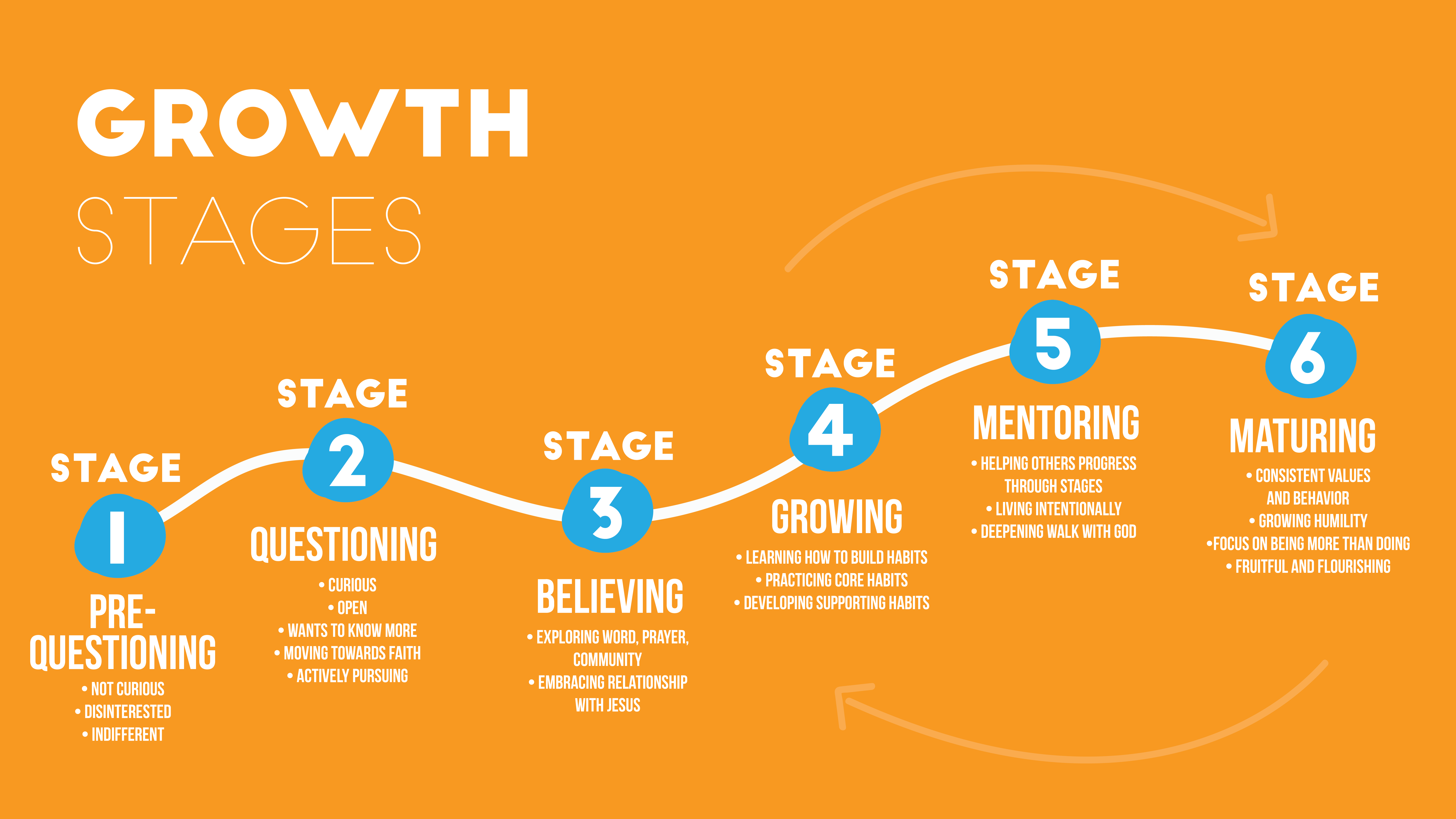Know Your Spiritual Condition (2 Corinthians 13:1-10)

Big Idea: Test yourself to know where you stand spiritually.
Char and I used to participate in a fitness program. It would come with lessons, habits, and exercises. It changed our lives for the better in many ways. Char lost a lot of weight, and both of us improved our eating and other habits.
Saturdays were tough. Every Saturday we’d pull out a tape measure and measure our progress. This is where it got real. Had we built muscle and made progress, or not? Some Saturdays we had to take pictures as well, so we’d be able to see our progress from the beginning to the end of the program.
I have to tell you that there’s something in me that resists measurement. Measurement brings accountability. Every Saturday I had to face the reality of where I was compared to where I wanted to be.
It’s the same in every area of our lives. We need to accurately assess our progress. It’s even true in our spiritual lives as well.
At least that’s the message of 2 Corinthians 13:5: “Examine yourselves, to see whether you are in the faith. Test yourselves.”
Paul, the apostle who planted this church, is writing to a church he had planted. He’s writing to address some problems in the church. In particular, he’s addressing some of the criticisms that have been leveled at him as a leader. Not everyone was a fan. By the time that he writes this letter, most of the church has repented, but not everyone. He writes to the church because he cares for them and wants to encourage them, while also aiming to change the minority's view of his leadership.
In other words, this is an ordinary church. They have problems. They have all kinds of people at all different stages. And as we get to the end of the letter, Paul tells them to evaluate where they are.
For the next few minutes, I want to walk with you through this passage to see what we can learn about how to assess and evaluate our own growth, and why this matters. From this passage I think we learn three lessons. Here’s the first one.
Examine yourself. (13:5-6)
Paul says in verses 5-6:
Examine yourselves, to see whether you are in the faith. Test yourselves. Or do you not realize this about yourselves, that Jesus Christ is in you?—unless indeed you fail to meet the test! I hope you will find out that we have not failed the test.
“Examine yourselves.” Examine means to put yourself to the test. If you were here last week, it’s the same word that Matthew used in the passage we looked at last week: “And one of them, a lawyer, asked him a question to test him” (Matthew 22:35). Paul then repeats himself: “Test yourselves.” In particular, he wants them to test whether they are genuinely followers of Jesus or not.
Why would Paul do this? What led Paul to instruct them to test themselves?
Paul was concerned by some of the behavior he saw in the Corinthian church. If you read 1 and 2 Corinthians, you will realize that there were some problems within the church that needed to be addressed. Some within the church had flirted with false teachers. They were influenced by society’s views of leadership. The church had sometimes tolerated immorality. It was a church that had sometimes been marred by conflict and division.
The surprising thing is that some within the church had demanded proof of Paul’s ministry and message. They examined Paul and judged him as deficient. Paul turns the tables on them and suggests that they need to examine themselves.
The reality is that we’re not always good judges of ourselves. We are so quick to judge others quickly and not even realize that we ourselves could be in trouble. If we are following Jesus, then that faith in him should translate into obedience. If our lives don’t line up with what we profess to believe, then we need to think about what this could mean.
Paul says that it’s possible for someone to think they’re a Christian when they’re really not. One of my heroes, Dr. Martyn Lloyd-Jones, was a leading doctor in England before he became a pastor. He said this:
For many years I thought I was a Christian when in fact I was not. It was only later that I came to see that I had never been a Christian and became one. . . .What I needed was preaching that would convict me of sin. . . .But I never heard this. The preaching we had was always based on the assumption that we were all Christians.
What’s interesting is that I seem to remember the same thing about his wife. She, too, believed she was a Christian until one day, as she listened to her husband preach, she realized that she was not.
This is why we need to examine ourselves. We need to take an honest look at our lives to see where we stand in relationship to Jesus.
We’re all at different stages, as you can see on the image on the screen:

We need to understand our current stage to assess our progress and identify how to grow.
It’s one reason why we’ve developed an online assessment that you can take. I hope you take it. You can also take a look at chapter 4 of How to Grow, which will give you some idea of your current stage and what you can do to move to the next stage.
Remember:
Each stage is beautiful. Each stage builds on what’s come before, and is a prelude to what’s coming next… There’s hope for each stage. We can celebrate our progress, help those who are behind us and with us, learn from those who are ahead of us, and take the next step. As long as we’re alive, God invites us to grow and to take the next step. (How to Grow)
Examine yourself. Test yourself. It’s very easy to be self-deceived about our spiritual condition, so it’s important to do this. We don’t want to be self-deceived about where we stand. It’s much better to know where we are so we know what we need to do in order to grow.
That’s the first lesson we learn from the passage. Here’s the second.
Leaders exist to help you know where you stand, and to help you to grow. (13:7-10)
In verses 9 to 10, paul explains why he wrote this letter to the church in Corinth:
For we cannot do anything against the truth, but only for the truth. For we are glad when we are weak and you are strong. Your restoration is what we pray for. For this reason I write these things while I am away from you, that when I come I may not have to be severe in my use of the authority that the Lord has given me for building up and not for tearing down. (2 Corinthians 13:8-10)
We learn at least three things about spiritual leadership from this passage.
First: leaders care more about serving than they do about their rights. Paul was under attack by some within the church, but you see his real goal here. He doesn’t care if he’s weak and they’re strong. He’s not in leadership for his own good. He’s got a much bigger concern.
This reminds us of one of the most important things about leadership, especially within the church. Spiritual leaders do not exist within the church to serve themselves. They exist to serve God and to serve you. Simon Sinek puts it best: “Leaders would sooner sacrifice what is theirs to save what is ours. And they would never sacrifice what is ours to save what is theirs. This is what it means to be a leader.” Paul is ready to sacrifice what’s his to serve the Corinthians.
Second: spiritual leaders want to help you grow. Paul gives his real agenda: their restoration. “Your restoration is what we pray for.” Paul is more interested in their restoration than his own wellbeing. He wants them put in order and to make progress. He wants them to grow.
One of my roles as a pastor — one of my most important roles — is to help you grow. One of the most shocking verses in the Bible is Hebrews 13:17:
Obey your leaders and submit to them, for they are keeping watch over your souls, as those who will have to give an account.
Okay, I know the shocking part for you: that the church is told to obey its leaders. That seems like crazy talk. A lot of us think that the last person we had to obey was our parents back in Grade 5. Ever since then we’ve made it a point that we’re not going to obey anyone. We’re naturally distrustful of leadership, and this verse points out one of our potential blind spots. Obeying spiritual leaders who follow the Bible and care for us is both honoring to God and beneficial for us.
But that’s not even the shocking part. The shocking part for me is the second part: “as those who will have to give account.” This is shocking. We tend to think that we’re only accountable for ourselves. Here we learn that your leaders are accountable for you. I will give account to God not just for my life but for how I’ve cared for your souls.
But there’s one more thing we learn: that spiritual leaders combine love and authority in their care for you. In verse 10, Paul mentions that he has authority. When necessary, that authority may seem unpleasant or harsh. But that’s not his intention. Paul goes out of his way to express his authority in a way that builds up rather than tears down.
Let’s put this together. Test yourself to know where you stand spiritually. But you’re not alone. God has given you the church to help. In particular, God has given you leaders — pastors and elders — who have a special responsibility to help you grow.
This is why I’d like to ask you to pray that God would raise up elders in our church.
So: assess your own growth, and use your leaders to help you. There’s one more lesson we learn as we close.
Your spiritual condition matters! (13:1-4)
Why does all of this matter? Why should you know your current stage? Why should you or anyone else care whether you’re growing or not? Paul says in verses 3 and 4 about Jesus:
He is not weak in dealing with you, but is powerful among you. For he was crucified in weakness, but lives by the power of God. For we also are weak in him, but in dealing with you we will live with him by the power of God. (2 Corinthians 13:3-4)
What’s he saying? Whether or not your leaders are present or not, whether your leaders are good or not, Jesus is both present and he is powerful. Your spiritual condition is of utmost importance to him. They may have thought that Jesus was weak, just like they thought that Paul was weak, but never mistake Jesus’ willingness to die for you as a sign of weakness. See it as a sign of his love and power. Jesus died to make your growth possible. He offers forgiveness to anyone who wants it. But he didn’t just die for you. He died, so you could live as a new person. He is very concerned with your growth.
And so Paul says: Test yourself to know where you stand spiritually. On those Saturday mornings we would get out the measuring tape and measure our progress. I’m asking you to get out the measuring tape today and measure your progress. We’re here to help. Because your spiritual condition really matters.





